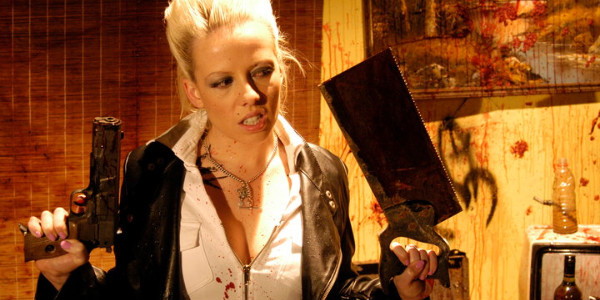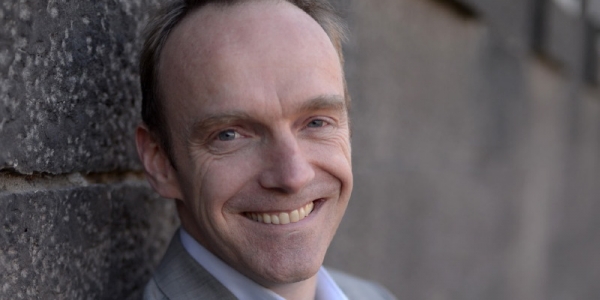This is signaled, if anything, by its thematic direction. “The theme this year is Mavericks, which I’ve kind of used as an uber-theme, because that’s what we’ve [always] been about at MUFF. I was talking to my best friend John Hughes who is a famous filmmaker in Australia and we saw this picture of Kenneth Anger, Dennis Hopper, Alejandro Jodorowsky and Donald Kramer, and we were like, ‘That’s what we’re like (big egos), but in Australia. We’re mavericks.’”
Citing David Lynch and David Cronenberg as fellow big-screen delinquents, he says the theme extends more widely into a cultural idea – one that he embodies at all times. “[A maverick] is someone who has their own view of the world and doesn’t give a fuck about anybody else, and doesn’t give a shit if what they say is offensive. Because I’ve gotten into a lot of trouble for saying offensive things over the years and I like being provocative. A lot of what I say is just being provocative – I like to provoke thought and debate. Everyone’s gotta be politically correct, you can’t question this or that, but I’m totally against that. Breaking all the taboos.”
As a working filmmaker, Wolstencroft’s heretic intentions are obvious in his own projects, which he’s been producing with more frequency of late. He recently took a trip to LA to film a documentary called The Last Days Of Joe Blow through the lens of pornographic star and friend Michael Tierney. And, in true character, he has no reservations about the subject matter he’s preparing to present. “I love [the porn industry]. It’s great. I think porn has a bad reputation for people being abused, but everyone’s having a great time. It’s a lot of fun as long as you don’t get carried away.
“[Louis Theroux] went on about how it was all terrible. And that was wrong, ‘cause it’s not. We’ve tried to show the different sides. The positive and the negative – the fun part of it, and then feeling like a piece of meat that gets abused and exploited. So it’s a double-edged sword and we’ve tried to show both. But it’s not a warning about porn.”
For the 13th festival MUFF is growing up just a little bit. They’ve introduced some corporate sponsors and they’ve cleaned themselves up – but you can expect no less boundary-pushing cinema, jaw-dropping gore or cantankerous subject matter. “We’re really trying to take MUFF in a new direction, a little bit. Because, you know, I run this festival independently, without any government funding. It’s the only festival in Australia that runs that way. I run it as an entrepreneur and I manage to keep it afloat, make it worthwhile doing,” says Wolstencroft.
Their two international guests are expectedly audacious. Underground writer Gene Gregoritz is “the closest thing we have now to a Charles Bukowski. He’s a hard drinkin’, hard partying guy and he’s done everything. He shoots heroin live on Facebook. He cuts himself with knives; he’s covered in scars. Serious guy.” Director of opening night film Chalie Cassanova, Terry McMahon, will also be in attendance to discuss his film – “An Irish Fight Club, but with more swearing.“
So what then, can be expected this year from the almost predictably controversial film festival? Richard reels off past stunts with a ferocity that makes you wonder how he still wanders the streets. “We’ve done lots of controversial things. We played that necrophiliac zombie film, LA Zombie, that was banned and I nearly went to jail over that. That was kind of interesting, not gonna do anything like that again. And I played a speech by the holocaust denier David Irving about seven or eight years ago.
“Every year we do something. So I like to do different things – we’ve done gay and lesbian films, which is just people having sex. We’ve defied the censor and played pornographic films. Luckily [A Serbian Film] was legal when I played it, but then it got banned. I have to be careful, because I played lots of banned films and they ignored me, but then they didn’t. They raided my house and were like, we’re going to fuck with you, basically, cause I’d just done it too often. But I didn’t get charged.“
Though he is defiant, he is also a legally-conscious man, and Wolstencroft certainly knows where the boundaries are. He would never play films, he says, of child pornography, or ‘snuff’ films, because of their illegality. Values he learnt in part, possibly, at the helm of BDSM nightspot The Hellfire Club for ten years, a lucrative venture for the entrepreneur. “People like Carl Williams would come into my nightclub all the time,” he says.” If you’re respectful to them they’re respectful to you, and they don’t kill everyone in your venue or something.”
And the same goes for his programming ethos. “I have no problem with anything as long as it’s fake. As long as no-one’s actually getting hurt. I agree that child pornography and snuff films should be banned, ‘cause they’re illegal. That’s a criminal act. But anything where it’s consenting adults – I don’t believe that pornography should be banned. Even S&M pornography where someone’s getting whipped, or spanked – there’s nothing wrong with that. As long as they’re volunteering.”
Part of this year’s program focuses on often-unexplored territory, new Irish cinema, in a survey called Their Day Has Come. A place of literary tradition, voracious drinking and James Joyce’s heraldry – but also, evidently, a new movement is cinema. “Some of the best new films I’ve seen have come out of Ireland and I’m playing about four or five of them. There’s a film called Tin Can Men and it’s like a new Eraserhead. I think maybe it could be a parable on the troubles. The IRA thing, and the way the average Irish person might have felt terrorised by the IRA, or possibly the English. So I think it has some sort of [metaphorical] political elements, but it’s more just about, what would happen if you were in a horrible situation. It’s not full of gore and blood, it’s just the performance. The acting is so incredibly good.”
Another film he mentions with particular fondness is a new documentary, Donkey Love. “These two Jewish filmmakers went to Columbia where the tradition is to have sex with donkeys. It’s culturally accepted and everyone does it, and they [even] show it in the distance. But these people are serious – it’s like a rite of passage. The documentary’s very misanthropic; it’s taking the piss out of these people. And that’s what’s controversial about it. ‘Cause it’s saying, ‘Aren’t these people a bunch of backwards idiots?’ And they are. They’re uneducated, they’re stupid.”
Reflecting on the particularly superstitious, yet no less auspicious occasion of the Festival’s ‘Lucky 13th,’ Wolsencroft casts his mind back over the gains it’s made, beginning as a feat of artistic rebellion. “It’s gotten bigger. And I think it’s got the begrudging respect of the establishment in the sense that our festival has discovered an amazing body of work. My eventual ambition is to build the festival up in about three or four years to something like SXSW where we have a music component and video games, and multimedia as well. I mean, that’s an ambition. It’s always good to be ambitious.”
But one thing that’s seen it stay afloat is the quality of cinema MUFF provides in an outlet cinemagoers would not otherwise have. Wolsencroft considers himself an expert in selecting the next crop of talented emerging filmmakers. “My selection criteria is that I look for talent,” he says. “I remember when I received James Huang’s first film Stygen, who made the Saw films – that was a little bit crap. It was a low budget horror film, didn’t have a great story, but it had this energy to it, and it was kindof nasty and had these weird torture machines in it. It was pretty full on and I thought there was something about it – they were the early ideas of the torture machines that ended up in Saw. It was something original, so that’s what I look for. Originality, talent. I consider MUFF a film movement.”
BY BELLA ARNOTT-HOARE







